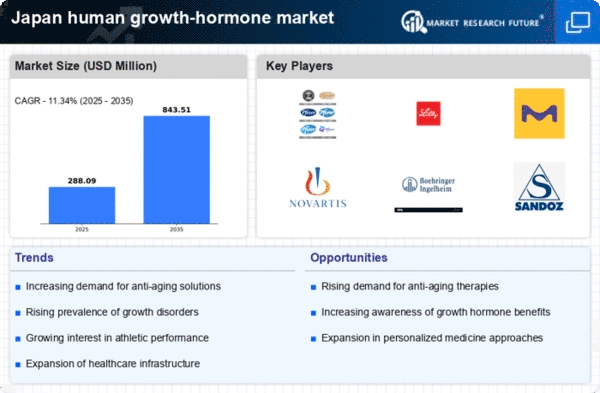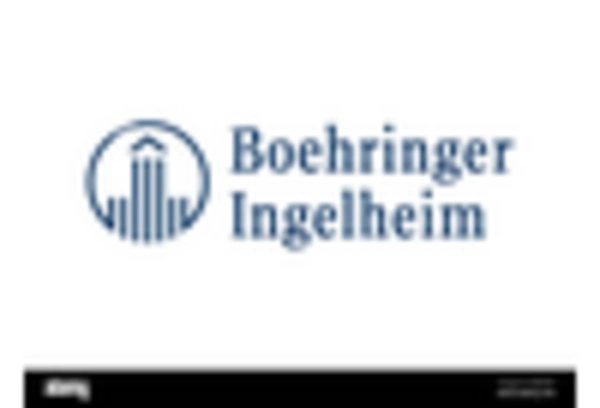Increased Focus on Sports and Fitness
The rising interest in sports and fitness among the Japanese population is contributing to the growth of the human growth-hormone market. Athletes and fitness enthusiasts are increasingly turning to growth hormone therapies to enhance performance, recovery, and overall physical condition. This trend is particularly pronounced in competitive sports, where the demand for performance-enhancing substances is high. The human growth-hormone market is likely to experience growth as more individuals seek legal and safe alternatives to improve their athletic capabilities. Additionally, fitness centers and sports organizations are beginning to recognize the potential benefits of growth hormone treatments, further driving awareness and acceptance within the fitness community.
Regulatory Support for Hormone Treatments
Regulatory support for hormone treatments in Japan is emerging as a significant driver for the human growth-hormone market. The Japanese government has been increasingly supportive of medical advancements that address hormonal deficiencies, leading to streamlined approval processes for new therapies. This regulatory environment encourages pharmaceutical companies to invest in research and development of innovative growth hormone products. The human growth-hormone market is likely to benefit from this supportive framework, as it fosters a conducive atmosphere for the introduction of new therapies. As regulations evolve to accommodate advancements in medical science, the market may see an influx of novel treatments that cater to the diverse needs of patients.
Technological Innovations in Hormone Therapy
Technological advancements in hormone therapy are reshaping the landscape of the human growth-hormone market. Innovations such as more precise delivery systems and improved formulations are enhancing the efficacy and safety of growth hormone treatments. In Japan, the introduction of smart delivery devices and personalized treatment plans is likely to attract more patients seeking effective solutions for growth hormone deficiencies. The human growth-hormone market is expected to see a surge in adoption rates as these technologies become more accessible. Furthermore, the integration of telemedicine in hormone therapy consultations is streamlining patient access to specialists, potentially increasing the market size as more individuals seek out these advanced treatment options.
Rising Awareness of Growth Hormone Deficiency
The increasing awareness of growth hormone deficiency among the Japanese population is a notable driver for the human growth-hormone market. As more individuals recognize the symptoms and potential health impacts of this deficiency, there is a growing demand for diagnostic testing and subsequent treatment options. This awareness is further fueled by educational campaigns and healthcare initiatives aimed at informing the public about the importance of hormonal balance. In Japan, it is estimated that approximately 1 in 3 adults may experience some form of hormonal imbalance, which could lead to a significant market opportunity. The human growth-hormone market is likely to benefit from this trend as healthcare providers become more proactive in diagnosing and treating growth hormone-related conditions.
Aging Population and Increased Healthcare Spending
Japan's aging population is a critical factor influencing the human growth-hormone market. With a significant portion of the population aged 65 and older, there is a heightened focus on health and wellness among older adults. This demographic shift is accompanied by increased healthcare spending, as older individuals seek treatments that enhance their quality of life. The human growth-hormone market stands to gain from this trend, as growth hormone therapies are often sought for their potential to improve vitality and physical performance in aging individuals. Reports indicate that healthcare expenditure in Japan is projected to reach ¥50 trillion by 2025, further driving demand for effective treatments, including those related to growth hormone.

















